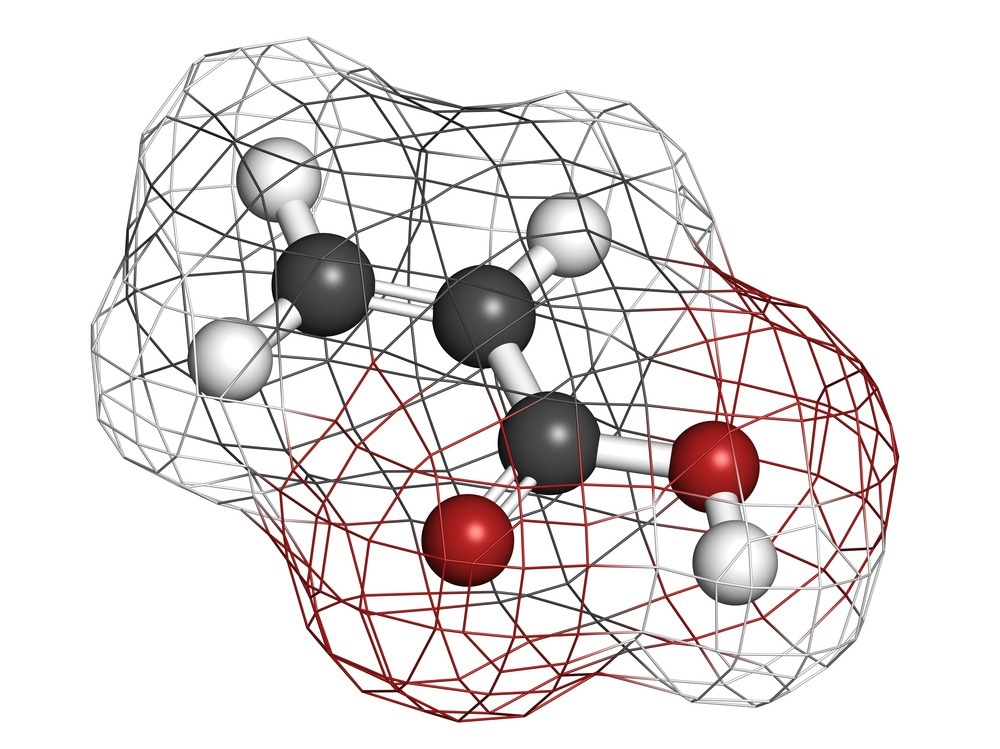In this interview, Chris Nicholas discusses catalyst technology that has allowed for more sustainable production of acrylic acid and acrylates. This research has inspired the startup Låkril Technologies Corporation, which is looking to commercialize this technology.
Please can you introduce yourself and your professional background?
我叫克里斯·尼古拉斯(Chris Nicholas);我是LåkrilTechnologies Corporation的联合创始人兼总裁,这是一家年轻的公司,该公司设想了一个世界,在该公司中,以生物为基础的糖被用作生产低碳化学品的原料。以前,我在Honeywell UOP组织工作,在那里我花了15年的时间发明和商业化催化剂来精炼流程,并获得博士学位。来自西北大学催化化学。
In new research, you have demonstrated a catalytic technology to convert chemicals from corn into acrylic acid and acrylates. Why is a more sustainable production method for these chemicals necessary?
Today’s production of over 6.5 million metric tons of acrylic acid supports a $10B+ industry across the paints, coatings, adhesives, and superabsorbent polymers markets. The problem is that over 16 million metric tons of CO2are emitted yearly to produce this acrylic acid. Our process for the dehydration of lactic acid to acrylic acid will lead to at least 35% CO2还原与当今的方法,并有可能完成碳固存。
Industry has sought this bio-based, low carbon route to acrylics for over a decade; the problem has always been economics. Our acrylic yields of greater than 90% from lactic feedstocks provide an opportunity not previously seen.
您能描述研究中使用的催化剂配方吗?
最近在我们的paper in JACS Au, our catalyst innovation incorporates a bifunctional catalyst comprising a solid acid and proprietary amines. This patent pending concept utilizes the amine to control the dehydration of alpha-hydroxy acids such as lactic acid and/or lactates. We, therefore, avoid significant side reactions including decarboxylation which generate undesired byproducts.
您的方法如何比以前将乳酸转化为丙烯酸酯的尝试更好?
在专利和开放科学文献中,我们已经对其他尝试进行了基准测试。我们的催化剂创新达到了90%的收益率,这是催化剂首次超过或更高的收益率,或者长期以来一直期望成为这种反应的商业化障碍。以前使用的大多数其他催化剂从乳酸原料中获得75%或更低的丙烯酸产物产量。

Image Credit: StudioMolekuul/Shutterstock.com
As CEO of Låkril Technologies, a startup company born from this technology, could you describe the commercial value of your catalytic formulations?
Today’s consumers are increasingly looking for bio-based, low-carbon alternatives for a more sustainable lifestyle. The National Academies recently identified a near-term need for low-carbon chemicals in order to start reducing CO2intensity at the lowest possible cost of implementation. The acrylic acid and/or acrylates produced from our conversion method allow the fulfillment of these needs and desires without the significant cost in time and development of reformulating the multiple paints, coatings, adhesives, and superabsorbent polymers in use today.
How does the cost of production using your method compare to fossil-derived chemical production?
Our lactic-to-acrylic process is within striking distance of today’s acrylic acid production cost and has the potential to deliver costs below that seen today. As per usual in the bio-derived chemicals world, the single largest contribution to cash cost of production is the lactic acid feedstock.
What are your immediate next steps?
Låkril Technologies is involved in a 3yr runway of scaling and gated technical improvement with approaches to market in 2024-2025. We are at present engaged in a series of development thrusts ranging from process improvement and scaling to additional catalyst improvements.
Where can readers find more information?
https://lakril.com/index.html
https://linkedin.com/company/lakril-technologies
https://twitter.com/LakrilTech
关于克里斯·尼古拉斯
Chris is the Co-Founder and President of Låkril Technologies, the startup he created in 2021 to commercialize a catalytic process for bio-based acrylic production. Prior to founding a business based on sustainable catalysis, he worked 15 years at Honeywell UOP in technical and managerial roles primarily focused on inventing and catalytically testing new materials and processes. Particular foci have included heterogeneous catalytic processes such as olefin oligomerization and alkylation, synthesis of inorganic materials (primarily metal oxides and zeolites), process engineering, molecular adsorption, and olefin metathesis. Chris earned his Bachelor of Arts from Kalamazoo College and a PhD at Northwestern University. Chris is a 25-year ACS Member and an AIChE Senior member who is an inventor on more than 115 issued US and foreign patents and the coauthor of 30+ peer-reviewed journal articles and a book chapter. He has received the 2020 Herman Pines Award in Catalysis from the Chicago Catalysis Club and the 2022 Award for Excellence in Catalysis from the Southwest Catalysis Society.
Disclaimer: The views expressed here are those of the interviewee and do not necessarily represent the views of AZoM.com Limited (T/A) AZoNetwork, the owner and operator of this website. This disclaimer forms part of theTerms and Conditions使用此网站。